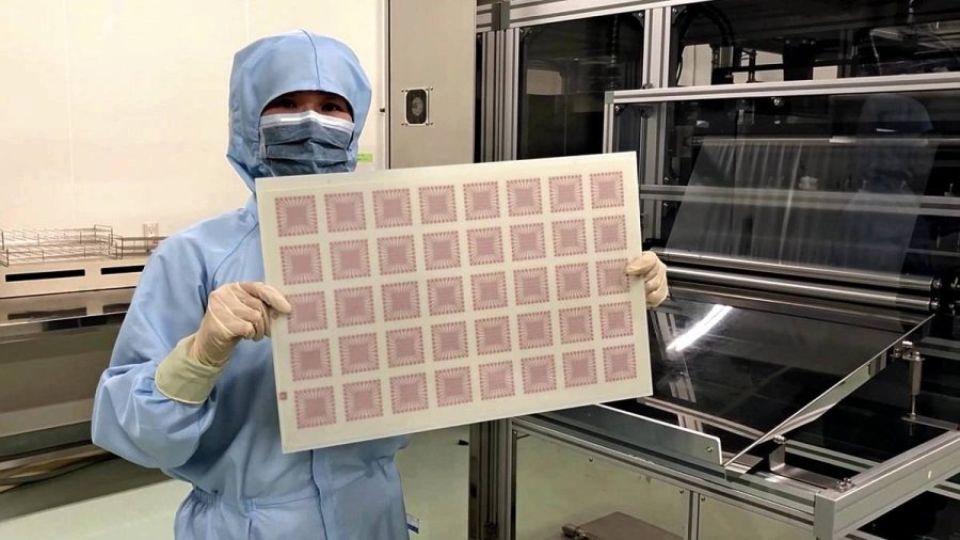September 19, 2023
TOKYO – Domestic manufacturers from other industries, including food, are increasingly turning out parts and materials essential for semiconductor production. Although they are operating on a small scale, these companies hold high market shares and are increasing their investments in anticipation of growth in the semiconductor market.
Ajinomoto Build-up Film (ABF), developed by the major umami seasoning company Ajinomoto Co., is insulation used for high-performance central processing units that comprise the heart of personal computers and game consoles. Ajinomoto holds an almost 100% market share in this material for major PC models.
Ajinomoto started sales in 1999 of ABF, which is film developed with the use of resin processing technology acquired through research into umami seasoning.
This insulating material has resulted in higher-quality CPUs and simplifies the production process compared to the conventional technology of painting liquid insulator over substrates. Shipments of ABF in fiscal 2021 were nearly double those in fiscal 2017.
Likewise, leading optical product maker Hoya Corp. holds an about 80% global market share in mask blanks — a material used in a technology called “extreme ultraviolet lithography” to print minute semiconductor circuit patterns on wafers.
Mask blanks are essential to produce photomasks, a plate used for printing circuit patterns. Only Hoya and AGC Inc. are said to possess mask blanks production technology for extreme ultraviolet lithography.
A common trend among these companies is high profitability backed by an oligopoly. In the case of Ajinomoto, sales of electronic and other functional materials, including ABF, accounted for only 5% of its consolidated sales of ¥1.3591 trillion in fiscal 2022.
However, the functional material segment accounted for 27% of the overall business profits, which indicate profits from core businesses.
Increasing investment
According to market research company Fuji Keizai Co., the global market for 30 key materials for semiconductors will grow to $44.4 billion (about ¥6.5 trillion) in 2026, up 30% from 2021. Companies are making investments to enhance ther production of such materials.
Ajinomoto announced in February it would invest ¥25 billion to increase the output of ABF. “We’ll continue research, so as not to fall behind in technological innovation,” said Sumio Maeda, an executive officer of Ajinomoto. “We’re determined to offer the best product even if competitors emerge.”
AGC plans to increase the production capacity of its plant in Fukushima Prefecture by 30%. It is installing new production machines at the plant, aiming to have the machinery operational in January 2024.
Toppan Inc., which has strong photomask technology, plans to invest more than ¥10 billion in fiscal 2023 to strengthen its plants in Saitama Prefecture and Taiwan.
Toto Ltd. produces “electrostatic chucks,” a component used in semiconductor production machines. It plans ¥4 billion in capital investment in fiscal 2023, viewing semiconductor-related areas as its new key business.
“New entrant companies with advanced technologies have opportunities in a high-profitability area,” said Masahiko Ishino, a senior analyst at Tokai Tokyo Research Institute Co. “Companies need to continue making investments to stay competitive.”

